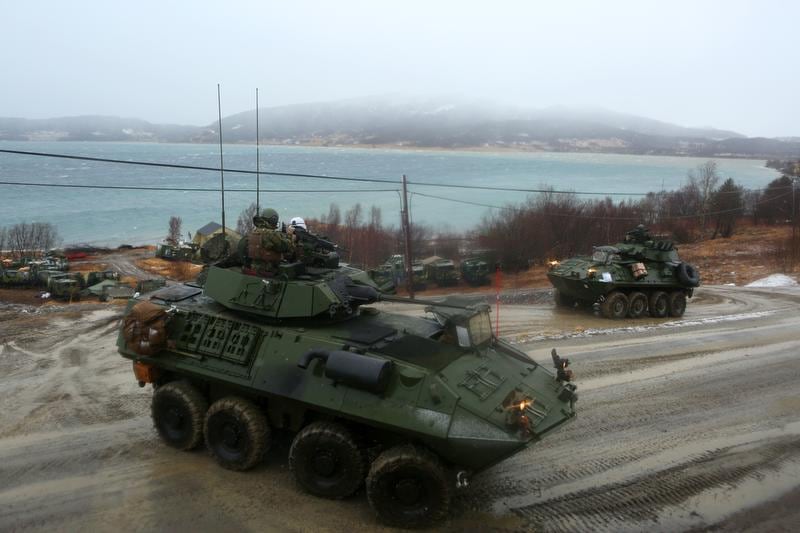Climate-controlled caves in Norway will house a new stock of Marine military gear and vehicles in August, and Marines will return unusable equipment to the U.S.
The caves are part of the Marine Corps' global prepositioning program. Marines and Norwegian troops will unload a maritime prepositioning force ship, the cargo ship Dewayne T. Williams, in Norway's Trøndelag region in mid-August, according to an Aug. 8 news release. Once the cave is clear, they'll load some 400 vehicles and 350 containers of equipment.
Among the vehicles to be added to the stockpile at the caves are M1A1 main battle tanks, tank retrievers, armored breaching vehicles, amphibious assault vehicles, expanded capacity vehicle gun trucks, and a few variants of 7½ ton trucks, according to the release.
North Carolina-based Marines moved equipment out of the caves in February for the first time in decades for use during Exercise Cold Response 2014, a massive multinational training endeavor. That equipment, some 3,000 pieces, was returned following the exercise, a Marine Corps spokesman said at the time.
Maj. Lauren Schulz, a spokeswoman for Marine Corps Forces Europe and Africa, said Marines from Blount Island Command. Florida, and 2nd Marine Logistics Group from Camp Lejeune, North Carolina, will conduct the offload and equipment modernization effort, with support from members of Marine Forces Europe and Africa.
As the new equipment is added, some of the older gear will head back to the states, Schulz said.
"As part of [Marine Corps Prepositioning Program-Norway], equipment will be offloaded and stored inside Norwegian caves while other equipment is loaded onto the ship to be returned to Blount Island in order to be retrograded," she said.
The operation will give Marines and Norwegian allies a chance to test a newly constructed pier in the region as they complete the offload.
"This routine equipment refresh also emphasizes the strong military bond between the U.S. and our Norwegian counterparts, and sustains an already solid foundation for our future cooperation," the release states.




